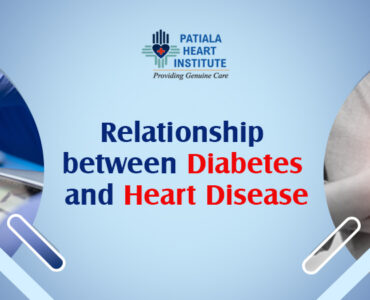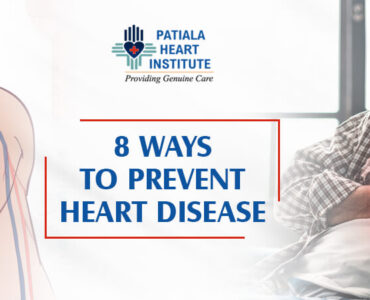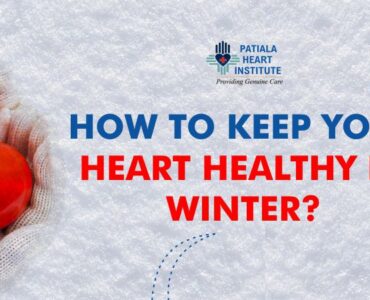Cardiovascular health is crucial for men, directly impacting overall well-being and longevity. The heart, a vital organ, tirelessly pumps blood throughout the body, supplying oxygen and essential nutrients to tissues while removing waste products. When the heart and blood vessels are compromised, the risk of developing serious conditions such as heart disease, stroke, and hypertension increases significantly. Maintaining cardiovascular health isn’t just about preventing diseases; it’s about enhancing quality of life, boosting energy levels, and ensuring long-term vitality.
Understanding Cardiovascular Health
The cardiovascular system, comprising the heart and blood vessels, is fundamental to the body’s functioning. The heart acts as a pump, circulating blood through a network of arteries, veins, and capillaries. This system ensures that oxygen and nutrients reach every cell while carbon dioxide and metabolic waste are transported away for elimination. The efficiency and health of this system are vital for maintaining homeostasis and supporting the body’s various functions.
Common Cardiovascular Diseases Affecting Men
Men are particularly susceptible to several cardiovascular diseases, each with unique characteristics and risks:
- Coronary Artery Disease (CAD): This condition involves the narrowing or blockage of the coronary arteries, usually due to atherosclerosis (plaque buildup). CAD can lead to chest pain (angina), heart attacks, and other complications.
- Hypertension (High Blood Pressure): Often called the “silent killer,” hypertension typically has no symptoms but can cause severe damage to the heart and blood vessels over time, increasing the risk of heart attack, stroke, and kidney disese.
- Heart Failure: This occurs when the heart is unable to pump blood efficiently, leading to symptoms like shortness of breath, fatigue, and fluid retention. Heart failure can result from various conditions, including CAD and hypertension.
- Arrhythmias: These are irregular heartbeats that can range from harmless to life-threatening. Some common types include atrial fibrillation and ventricular tachycardia.
- Peripheral Artery Disease (PAD): Similar to CAD, PAD involves the narrowing of arteries, but it affects the extremities (usually the legs), causing pain and mobility issues.
Risk Factors Unique to Men
While many risk factors for cardiovascular disease are common to both men and women, some are particularly pertinent to men:
- Higher Prevalence of Risk Behaviors: Men are more likely to engage in behaviors such as smoking, excessive alcohol consumption, and leading a sedentary lifestyle, all of which elevate cardiovascular risk.
- Hormonal Differences: Testosterone levels, which are higher in men, can influence fat distribution and cholesterol levels, potentially contributing to higher risk.
- Work-Related Stress: Men often experience significant stress related to work and societal expectations, which can impact heart health. Chronic stress is a known risk factor for hypertension and heart disease.
- Underestimation of Symptoms: Men are more likely to dismiss symptoms or delay seeking medical attention for heart-related issues, leading to worse outcomes.
Top 10 Lifestyle Changes for Men’s Cardiovascular Health
1. Healthy Diet
A healthy diet is the cornerstone of cardiovascular health. A balanced diet provides essential nutrients that support heart function, regulate blood pressure, and reduce inflammation. A diet rich in fruits, vegetables, whole grains, and lean proteins can lower the risk of heart disease by managing cholesterol levels and improving overall heart health.
Foods to Include
- Fruits and Vegetables: Packed with vitamins, minerals, and antioxidants, fruits and vegetables help reduce blood pressure and inflammation. Aim for a variety of colors to ensure a broad range of nutrients.
- Whole Grains: Foods like oats, brown rice, and whole wheat bread are high in fiber, which helps manage cholesterol levels and promotes a healthy digestive system.
- Lean Proteins: Sources such as fish, poultry, beans, and legumes provide essential amino acids without the unhealthy fats in red and processed meats.
- Healthy Fats: Incorporate sources of unsaturated fats, such as avocados, nuts, seeds, and olive oil, which can help reduce bad cholesterol levels.
2. Regular Exercise
Regular exercise is a powerful tool for maintaining heart health. It helps control weight, reduces blood pressure, improves cholesterol levels, and boosts cardiovascular fitness. Physical activity also reduces stress and enhances mental well-being, which are important for a healthy heart.
Recommended Types of Exercise
- Aerobic Exercise: Activities like walking, running, cycling, and swimming increase heart rate and improve the efficiency of the cardiovascular system. Aim for at least 150 minutes of moderate-intensity or 75 minutes of high-intensity aerobic exercise per week.
- Strength Training: Incorporating resistance exercises, such as weight lifting, helps build muscle, reduce body fat, and support metabolic health. Aim for strength training exercises at least two days a week.
- Flexibility and Balance: Practices such as yoga and stretching improve flexibility and balance and reduce the risk of injury, contributing to overall physical fitness.
3. Maintain a Healthy Weight
Obesity significantly increases the risk of cardiovascular diseases, including heart attack, stroke, and hypertension. Excess body fat, particularly around the abdomen, contributes to high blood pressure, elevated cholesterol levels, and insulin resistance, all of which strain the heart.
Strategies for Weight Management
- Balanced Diet: Focus on nutrient-dense foods that are low in calories but high in essential nutrients. Avoid crash diets and aim for sustainable, long-term changes in eating habits.
- Regular Exercise: Combine aerobic exercises with strength training to burn calories and build muscle. Consistency is key to effective weight management.
- Behavioral Changes: Monitor your eating habits, manage stress, and seek support from healthcare providers or weight management programs if needed.
4. Quit Smoking
Smoking is one of the most significant risk factors for cardiovascular disease. The chemicals in tobacco smoke damage the lining of the arteries, leading to a buildup of fatty material (atherosclerosis) that narrows the arteries. This can result in reduced blood flow to the heart and other organs. Smoking also increases blood pressure and heart rate, reduces oxygen in the blood, and makes blood more likely to clot, all of which heighten the risk of heart attack, stroke, and peripheral artery disease.
Benefits of Quitting Smoking
The benefits of quitting smoking begin almost immediately and continue to improve over time:
- Within 20 Minutes, Blood pressure and heart rate begin to normalize.
- Within 12 Hours: Carbon monoxide levels in the blood drop to normal, improving oxygen availability.
- Within 1 Year: The risk of coronary heart disease is about half that of a smoker.
- Within 5 Years: The risk of stroke can fall to that of a non-smoker.
- Long-Term: Reduced risks of lung cancer, other cancers, and respiratory diseases, alongside improved overall cardiovascular health and longevity.
5. Limit Alcohol Intake
While moderate alcohol consumption can have some heart benefits, excessive drinking poses significant risks. High alcohol intake can lead to high blood pressure, heart failure, and stroke. It also contributes to cardiomyopathy (disease of the heart muscle) and arrhythmias (irregular heartbeats). Alcohol is high in calories, which can lead to weight gain and further strain the heart.
Recommended Alcohol Consumption Guidelines
- Moderate Drinking: The American Heart Association recommends that men limit alcohol intake to no more than two drinks per day. One drink is typically 12 ounces of beer, 5 ounces of wine, or 1.5 ounces of spirits.
- Avoid Binge Drinking: Consuming large amounts of alcohol in a short period is particularly harmful and should be avoided.
Healthier Alternatives to Alcohol
- Non-Alcoholic Beverages: Opt for water, sparkling water, herbal teas, or non-alcoholic versions of your favorite drinks.
- Mocktails: Create flavorful and sophisticated non-alcoholic cocktails using fresh ingredients like fruits, herbs, and juices.
- Healthy Hydration: Staying hydrated with water and other non-alcoholic beverages supports overall health and helps reduce the desire for alcohol.
6. Manage Stress
Chronic stress is a significant factor contributing to cardiovascular disease. When stressed, the body releases stress hormones like cortisol and adrenaline, which increase heart rate and blood pressure. Persistent stress can lead to unhealthy coping mechanisms, such as overeating, smoking, or excessive drinking, further exacerbating the signs of heart problems in men.
Stress Management Techniques
- Meditation: Mindfulness meditation can help reduce stress by promoting relaxation and emotional balance. Regular meditation has also been shown to lower blood pressure and improve overall well-being.
- Exercise: Physical activity is a natural stress reliever. Activities like yoga, tai chi, or brisk walking can help manage stress levels.
- Hobbies and Interests: Engaging in enjoyable activities, such as reading, gardening, or playing a musical instrument, can provide a mental break and reduce stress.
- Deep Breathing Exercises: Techniques such as deep breathing, progressive muscle relaxation, and guided imagery can quickly reduce stress and promote relaxation.
7. Regular Health Check-ups
Routine health check-ups are vital for early detection and prevention of cardiovascular diseases. Regular screenings allow healthcare providers to monitor key health indicators and identify potential issues before they become serious. Early intervention can significantly improve outcomes and reduce the risk of heart disease and other complications.
Key Tests and Measures
- Blood Pressure: Regular blood pressure checks help detect hypertension early, allowing for timely management. Normal blood pressure is generally below 120/80 mm Hg.
- Cholesterol Levels: Lipid profiles measure total cholesterol, LDL (bad cholesterol), HDL (good cholesterol), and triglycerides. High cholesterol levels can lead to atherosclerosis and increase the risk of heart disease.
- Blood Sugar Levels: Monitoring blood sugar can help detect diabetes or prediabetes, both risk factors for cardiovascular disease.
- Body Mass Index (BMI): BMI measures body fat based on height and weight, helping to assess obesity-related risks.
- Electrocardiogram (ECG or EKG): This test records the heart’s electrical activity and can identify arrhythmias, heart attacks, and other heart conditions.
- Stress Test: Evaluates heart function during physical activity, helping to identify potential coronary artery disease.
8. Control Blood Pressure
High blood pressure, or hypertension, is a leading cause of heart disease. It forces the heart to work harder to pump blood, thickening and stiffening the heart muscle and blood vessels. Over time, this can result in heart attack, stroke, heart failure, and other serious conditions. Hypertension is often asymptomatic, making regular monitoring essential.
Strategies to Maintain Healthy Blood Pressure Levels
- Healthy Diet: A diet rich in fruits, vegetables, whole grains, and low-fat dairy can help lower blood pressure. The DASH (Dietary Approaches to Stop Hypertension) diet is particularly effective.
- Regular Exercise: At least 150 minutes of moderate-intensity weekly exercise can help lower blood pressure and improve heart health.
- Limit Sodium Intake: Reducing salt intake to less than 2,300 mg daily (ideally 1,500 mg) can significantly lower blood pressure.
- Reduce Alcohol Consumption: Limiting alcohol intake can help maintain healthy blood pressure levels.
- Stress Management: Techniques such as meditation, deep breathing, and regular physical activity can help reduce stress and lower blood pressure.
- Healthy Weight: Maintaining a healthy weight through diet and exercise can help control blood pressure.
9. Healthy Sleep Habits
Quality sleep is crucial for overall health, including cardiovascular health. Poor sleep, both in quantity and quality, can increase the risk of high blood pressure, obesity, diabetes, and heart disease. During sleep, the body undergoes processes that help maintain heart and blood vessel health, regulate stress hormones, and support metabolic functions.
Tips for Better Sleep
- Sleep Hygiene Practices: Establish a regular sleep schedule by going to bed and waking up at the same time each day, even on weekends. Create a restful environment by keeping the bedroom cool, dark, and quiet.
- Limit Screen Time: Avoid screens (phones, tablets, computers) at least an hour before bedtime, as blue light can interfere with the production of melatonin, the sleep hormone.
- Relaxation Techniques: To help unwind, incorporate relaxation practices such as reading, listening to calming music, or taking a warm bath before bed.
- Avoid Stimulants: Limit caffeine and nicotine intake, especially in the afternoon and evening, as they can disrupt sleep patterns.
- Physical Activity: Regular exercise can promote better sleep, but avoid vigorous activity close to bedtime.
10. Stay Hydrated
Hydration is essential for maintaining the body’s optimal function. Water is critical in various bodily processes, including temperature regulation, joint lubrication, and transporting nutrients and waste products. Proper hydration supports digestion, kidney function, and cognitive performance. Staying hydrated also helps maintain energy levels and physical performance, contributing to overall well-being.
Conclusion
Heart problems in men are a growing concern, but you don’t have to face them alone. At Patiala Heart Institute, we are dedicated to providing top-notch care and expert advice to help you maintain optimal heart health. For comprehensive men’s heart health tips and specialist care, visit the Patiala Heart Institute, home to the best heart doctor in Patiala.
Our heart specialist doctors in Patiala provide personalized treatment plans and preventive care to help you achieve optimal cardiovascular health. Take charge of your heart health today by consulting with our top-tier professionals dedicated to your well-being.







